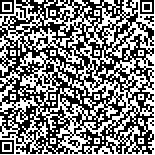| Quote
: |
张宝君, 杨亚丽, 雷蕊.银杏内酯B注射液对ITP患者T细胞亚群、MDSCs免疫失衡的影响[J].湖南中医药大学学报英文版,2025,45(3):529-533.[Click to copy
] |
|
| |
|
|
| This paper
:Browser 1638times Download 867times |
| 银杏内酯B注射液对ITP患者T细胞亚群、MDSCs免疫失衡的影响 |
| 张宝君,杨亚丽,雷蕊 |
| (廊坊市中医医院血液科, 河北 廊坊 065000;廊坊市中医医院检验科, 河北 廊坊 065000) |
| 摘要: |
| 目的 探究原发免疫性血小板减少症(ITP)患者应用银杏内酯B注射液治疗对T细胞亚群和髓源性抑制细胞(MDSCs)免疫失衡的影响。方法 选取2021年12月至2023年12月廊坊市中医医院收治的132例ITP患者作为研究对象,将其随机分为研究组(n=66)和对照组(n=66)。给予对照组利妥昔单抗治疗,给予研究组银杏内酯B注射液治疗,两组治疗周期均为14 d。对比两组疗效;对比两组治疗前后Th1/Th2细胞因子[肿瘤坏死因子-α(TNF-α)、干扰素-γ(IFN-γ)、白细胞介素(IL)-4、IL-10]、MDSCs、Treg/Th17水平;对比两组不良反应发生率。结果 研究过程中,对照组3例患者退出研究,研究组1例患者退出研究,最终对照组纳入63例,研究组纳入65例。研究组(95.38%)治疗总有效率高于对照组(74.60%)(P<0.05)。治疗后,两组TNF-α、IFN-γ、Th17均降低(P<0.05),IL-4、IL-10、MDSCs、Treg和Treg/Th17均升高(P<0.05);与对照组比较,研究组TNF-α、IFN-γ、Th17水平均降低(P<0.05),IL-4、IL-10、MDSCs、Treg和Treg/Th17均升高(P<0.05)。与对照组(26.98%)比较,研究组(9.23%)总不良反应发生率降低(P<0.05)。结论 应用银杏内酯B注射液治疗ITP患者,可提升患者临床疗效,改善Th1/Th2细胞因子和MDSCs免疫失衡,且不会增加患者不良反应发生率。 |
| 关键词: 原发免疫性血小板减少症 银杏内酯B注射液 Th1/Th2细胞因子 髓源性抑制细胞 调节性T细胞 辅助性T细胞17 |
| DOI:10.3969/j.issn.1674-070X.2025.03.021 |
| Received:August 12, 2024 |
| 基金项目:河北省中医药管理局2023年度中医药类科学研究课题计划项目(2023231)。 |
|
| Effects of ginkgolide B injection on immune imbalance of T cell subsets and MDSCs in ITP patients |
| ZHANG Baojun, YANG Yali, LEI Rui |
| (Department of Hematology, Langfang TCM Hospital, Langfang, Hebei 065000, China;Department of Laboratory Medicine, Langfang TCM Hospital, Langfang, Hebei 065000, China) |
| Abstract: |
| Objective To investigate the effects of ginkgolide B injection on immune imbalance of T cell subsets and myeloid-derived suppressor cells (MDSCs) in patients with primary immune thrombocytopenia (ITP). Methods A total of 132 ITP patients admitted to Langfang TCM Hospital from December 2021 to December 2023 were selected as the research objects and were randomly divided into a study group (n=66) and a control group (n=66). The control group received rituximab treatment, while the study group was treated with ginkgolide B injection. The treatment cycle for both groups was 14 d. The therapeutic efficacy was compared between the two groups. The levels of Th1/Th2 cytokines [tumor necrosis factor-α (TNF-α), interferon-γ (IFN-γ), interleukin (IL)-4, IL-10], MDSCs, and Treg/Th17 were compared before and after treatment between the two groups. The incidence of adverse reactions was also compared between the two groups. Results During the research process, three patients in the control group and one patient in the study group withdrew from the study. Ultimately, 63 patients were included in the control group and 65 in the study group. The overall effective rate of treatment in the study group (95.38%) was higher than that in the control group (74.60%) (P<0.05). After treatment, TNF-α, IFN-γ, and Th17 levels decreased in both groups (P<0.05), while the levels of IL-4, IL-10, MDSCs, and Treg, as well as the Treg/Th17 increased (P<0.05). Compared with the control group, the study group had lower levels of TNF-α, IFN-γ, and Th17 (P<0.05) and higher levels of IL-4, IL-10, MDSCs, and Treg, as well as the Treg/Th17 (P<0.05). The overall incidence of adverse reactions in the study group (9.23%) was lower than that in the control group (26.98%) (P<0.05). Conclusion Ginkgolide B injection for the treatment of ITP patients can improve clinical therapeutic efficacy, alleviate the immune imbalance of Th1/Th2 cytokines and MDSCs, and does not increase the incidence of adverse reactions. |
| Key words: primary immune thrombocytopenia ginkgolide B injection Th1/Th2 cytokines myeloid-derived suppressor cells regulatory T cells T helper 17 cells |
|

二维码(扫一下试试看!) |
|
|
|
|


